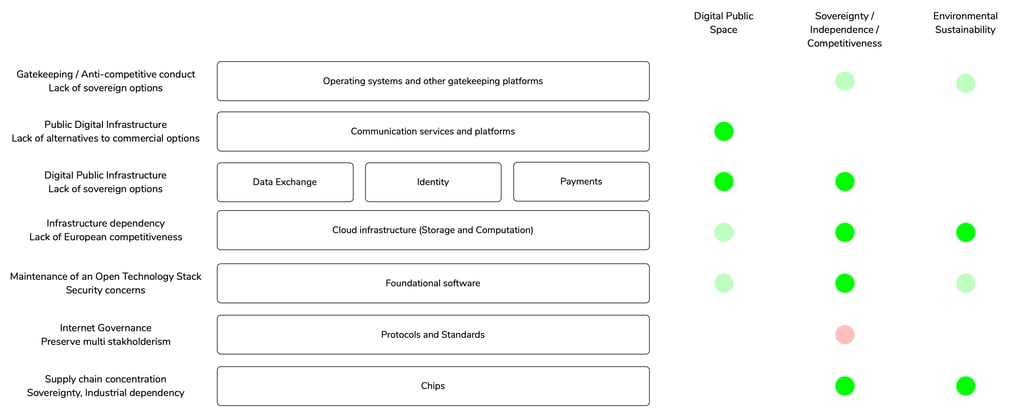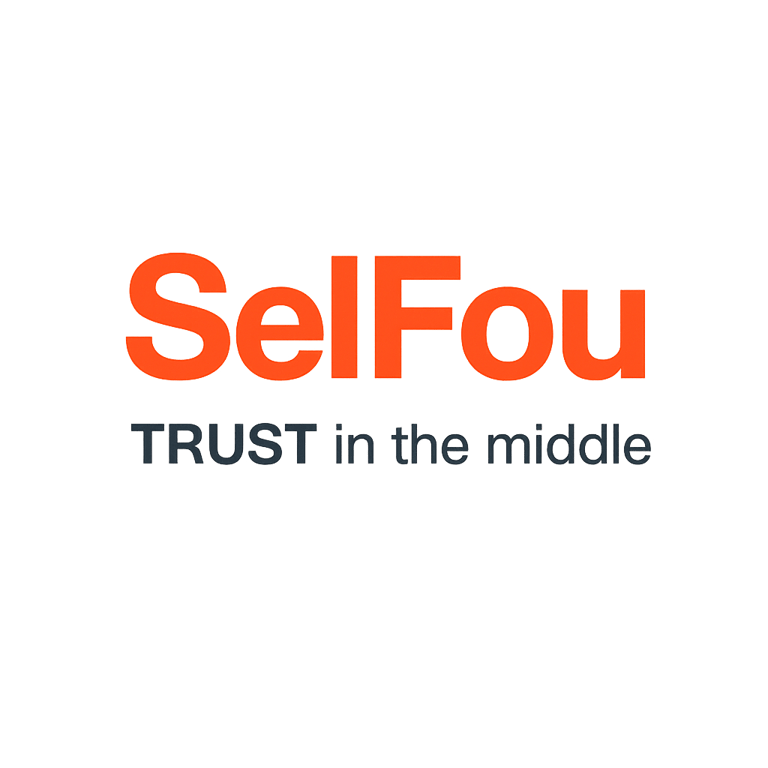Feudal, Oligopoly or Sovereign? What will tomorrow’s digital economy look like?
This #2 blog of governance in the digital economy – structural changes – illustrates why solutions, like the Euro-Stack, are required to balance this economy which, according to Forester, will reach $16.5 trillion and capture 17% of global GDP by 2028 for 14 countries across North America, Europe, APAC, and Latin America. On February 13, 2025, the “EuroStack – Building a European alternative for technological sovereignty” report was released. On February 14, the ecdpm launched an analysis of similar international reconciling approaches from India to Europe. These put forward a path to a sovereign approach meant to counter a market where two-thirds of the digital economy worldwide (Forrester) is generated by the United States and China.
SelFou
2/14/20253 min read


Building on the Draghi report, the Euro-Stack report shares concerns about Europe’s 80% dependence on imported digital technologies, the widening innovation gap, and the lack of scaling capital for European tech firms. Source: Open Future, Jan Krewer, Blog/EuroStack – A Blueprint for Europe’s Digital Future?
What we need to know:
Flexibility is at the core of the stack, the cornerstone of the Euro-Stack. “The metaphor of the stack originally refers to the interconnected layers of technology that make up the global digital infrastructure (Bratton, 2016), including hardware, software, protocols and data.” Source: Open Future, Blog Mapping the Debates About Strengthening Europe’s Digital Infrastructure, October 15, 2024
“Unlike traditional hierarchical models of infrastructure, the stack is dynamic and flexible, allowing for different views depending on one’s goals. Rather than seeing infrastructure as a fixed, ordered system, the stack approach treats it more like a web, open to different perspectives depending on your priorities.” (ibid)
This invites cooperation and collaboration, especially where socio-economical power struggles are at play, it breeds hybrid rapports and opens the door to countries that might not be in dominant positions.
Why is this important?
China, with DeepSeek, brought to market a solution based on open-source software which cost far less money, time and effort that the equivalent US solution. “Open-source and digital commons represent critical assets for Europe's digital independence.” Source: notes from the EuroStack conference last September. Also, according to the report tabled today, “The EuroStack initiative promotes building strategic capabilities while maintaining beneficial international collaborations.” It is a way for Europe to avoid dependence on the United States and China and open the door to less powerful players.
Sarah Guillou in her article Oligopoly warning for the digital economy writes: “The concentration of economic power in this oligopoly is clearly obvious when we look at other dimensions of the performance of the digital economy, such as capitalisation, revenues and spending on research and development (R&D). This is particularly true for market capitalisation. The GAFAMs (Google, Apple, Facebook, Amazon and Microsoft) are emblematic in this respect.”
According to Mariana Mazzucato, in her article Public value and platform governance, “The question regarding competition and development concerns improvements to the scope of the means for data collection – with increasing numbers of interactions, types of interactions and interaction intensity – and the increasing oligopoly of data hording, both relative to and dependent of primary service improvement, where the stakes concern the increasing remit of domains of a viable consumption and information-gathering driving an exhaustion potential for the scope of digital intermediation.”
What does this mean?
Sarah Guillou continues by saying: “One of the distinctive features – and not the least of them – of the digital economy lies in the political arena. Leaders are adopting strategies to develop and interact with other market players that increasingly interfere with state governance. As a result, the digital economy is becoming a growing incubator of challenges to the political sovereignty of states, with which it sometimes competes.” (ibid)
The World Economic Forum states: “As the global economy rapidly digitalizes, an estimated 70% of new value created over the coming decade will be based on digitally-enabled platform business models. Digital technologies have the potential to enable new value for everyone, but they risk further exacerbating exclusion, the unequal concentration of power and wealth, and social instability. Companies must use digital infrastructure and data to collaborate, develop innovative business models, navigate disruption, and transition to a new normal, purpose-driven, sustainable, and inclusive.”
In conclusion
Feudal, Oligopoly or Sovereign? What will tomorrow’s digital economy look like? Europe and other continents have been putting forward different stepping stones with the AI Summit in Paris (investments of datacentres), the Euro-Stack report, the ecdpm analysis, the US stance on increased taxes and the opening of the Berlin Security Summit today.
Of course Rome was not built in one day, but it seems digital transformation is lightspeed faster than roman time. So time is of the essence.
